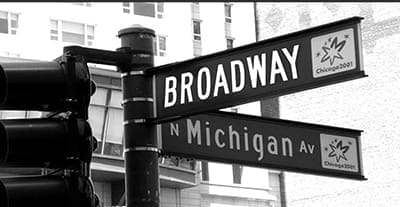By Colleen Connell, Executive Director of ACLU Illinois
The news of Justice Ruth Bader Ginsburg’s death just weeks before the 2020 General Election solidified for many the role that Supreme Court of the United States will play – likely with an expanded conservative majority – in addressing numerous civil rights and civil liberties issues that affect our lives.
Women’s rights under attack by a conservative Supreme Court
Because of Justice Ginsburg’s long association with protecting and advancing women’s rights, attention turned almost immediately to the future of Roe v. Wade, the landmark 1973 decision that recognized the constitutional right of a woman to decide whether and when to become a parent.
The concern about Roe is legitimate. President Donald Trump ran in 2016 by suggesting that there needed to be some form of “punishment” for women who seek abortions and the physicians who treat those patients. Moreover, Trump promised only to appoint Justices who would overturn the rights under Roe.
While legislators and advocates in Illinois have taken significant steps – through the enactment of the Reproductive Health Act last year – to assure that people in our state will be able to continue to access reproductive health care, the Supreme Court might soon ensure that residents in other states might not be able to access abortion care. We know how this will play out. The rich and privileged in these states will continue to access abortion care – even if they have to travel to states like Illinois where the procedure will remain legal. But those with less financial and other resources will be forced to carry their pregnancy to term – whether they are emotionally or economically prepared to raise children or not.
Attacks on Roe, if successful, threaten to unravel the fabric of the broad fundamental rights previously established by the Court – including precedents that protect the right to use birth control, the right to abortion, the right to raise children consistent with one’s own values, and the right to marry, including the right of same sex couples to marry. A new conservative majority on the Court may serve as an invitation for other ultra-conservative advocates to bring renewed challenges in a number of areas, from immigration and LGBTQ+ rights, to criminal justice and policing.
A looming threat to expanding equal protections under the law
But perhaps no area presents a challenge to those of us seeking equality and to expand the protections of our constitution than the Court’s increasing willingness to prioritize religious freedom over other constitutionally protected rights.
The First Amendment to the Constitution recognizes the right of each person to worship – or not – as they see fit. The First Amendment also protects against government establishment of an official religion or giving preference to one faith over others. Taken together, the religious protections in the First Amendment have been understood to protect the right of each person to believe whatever they want, while at the same requiring each person to abide by laws that neutrally apply to all people regardless of their religion.
Increasingly, however, the expanding conservative majority on the Court has skewed this traditional understanding of religious liberty. Recent conservative rulings argue that non-discrimination laws cannot be applied to those who claim that their religious beliefs demand that they engage in the prohibited discrimination.
Justices Thomas and Alito recently fired another loud warning shot in this dispute. Concurring in the Court’s decision not to hear the case of Kim Davis, a Kentucky county clerk who had been sued for refusing to issue marriage licenses to same-sex couples, the two justices issued a four-page statement denouncing the harm done to religious freedom in the 2015 decision, Obergefell v. Hodges, which recognized constitutional protection for same-sex couples to marry.
“Due to Obergefell, those with sincerely held religious beliefs concerning marriage will find it increasingly difficult to participate in society,” Justice Thomas wrote, adding that he felt the decision had stigmatized people of faith. “Obergefell enables courts and governments to brand religious adherents who believe that marriage is between one man and one woman as bigots, making their religious liberty concerns that much easier to dismiss,” Justice Thomas continued, adding, “In other words, Obergefell was read to suggest that being a public official with traditional Christian values was legally tantamount to invidious discrimination toward homosexuals.”
Using religion as a justification for discrimination
An upcoming case also raises the specter that an expanded conservative majority will privilege religion and allow religious belief to justify discrimination. On the day after the election, and perhaps with a new Associate Justice sitting on the case, the Court will hear arguments in Fulton v. City of Philadelphia. In that case, the Court will decide whether faith-based adoption agencies using public monies can deny adoption opportunities to same-sex couples, among others. These agencies have been forced to comply with human rights laws barring discrimination against couples on the basis of their sexual orientation. But these adoption agencies suggest that it is they who are suffering discrimination – by being denied public funds because they refuse to place children with LGBTQ+ couples.
This case closely follows action two terms ago by the Court in a Colorado case where a baker denied a gay couple service for their wedding cake. Although the Court did not make a final decision on the merits in that case, it is likely that the new Court might find that a business owner could use their religious views as a reason to discriminate against gay couples. It also is possible that the Court might extend religious protections – or, more precisely, the ability to use religion to discriminate — to employers, businesses and health care providers. This could mean that LGBTQ+ people in the U.S. could be fired, refused service or health care services because of their sexuality.
In short, this new Court might rule that religiously-based discrimination is lawful and protected.
Requiring all people to respect the basic rights of others — for example, their right to marry while complying with generally applicable laws — upholds the fundamental constitutional value of equal protection of the law and the right to make your own decision about religious belief.
Legislatures and voters across the country have shown support for the protection of these basic constitutional rights. They have voted increasingly for non-discrimination and against using religion, race, gender, sexual orientation, or gender identity as a justification for discrimination. The Supreme Court should heed these developments and recognize that its highest obligation is to the first command of the Constitution – to “do justice” for all. If the Court does not, it is incumbent on the rest of us to continue our advocacy in the legislatures, city councils, and courts of public opinion to reinforce the command that the Constitution must protect all of us and that taxpayer funds – raised from all of us – should not be awarded to those who discriminate. Make your voice heard this election and vote.



